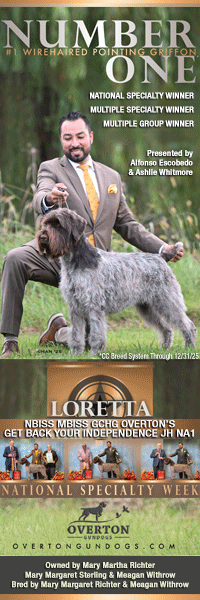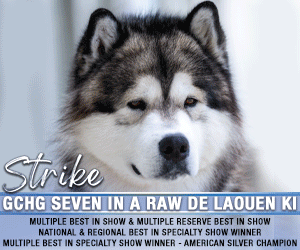The First Official Dog Show Photographer
By Amy Fernandez
These days show photographers are taken for granted. That final point, first major, there’s always someone on hand to commemorate the big occasion. Likewise, we can rest assured that the forthcoming pictures will be topnotch, professional quality. Dog show photography has actually been around so long that, in more than one case, it has become a family business.
Therefore it’s good to remember William Brown, the guy who paved the way for all this. Well actually, if we want to get technical, we should start by thanking George Foley. Foley wasn’t the first dog show superintendent, but back in early 1920s he was the guy that took management to a new level by implementing policies and protocols that guaranteed standardized efficiency everywhere, every weekend. For example, he was instrumental in getting PHA up and running, therefore setting a bar for what to expect when hiring a professional handler. He also masterminded the concept of Children’s Handling Competition thereby calling a halt to the bands of roving, unsupervised kids that overran his orderly little dog show utopia every weekend.
So back to the photography biz. Back in 1925 William Brown first approached Foley, who was then titled President of the Foley Dog Show Organization, for permission to become the official photographer of the winners at his shows. Photography was nothing new by the ‘20s, and Foley had been around the block a few times with various scammers billing themselves as experts and pros on this turf. Typically, they collected deposits or even full payments for photos that were never sent, often because they didn’t bother loading any film in the camera. Let’s just say that there were enough variations on this con to make exhibitors wary of the deal and convince Foley that professional show photos were an all-round problem to avoid.
So when William Brown came knocking on his door the answer was a resounding ‘no thank you’. But the thing with Brown was patience and persistence. Both are vital traits for a photographer, even though Brown happened to be a building contractor who was simply obsessed with the twin passions of dogs and photography since age 12.
Obviously, Foley eventually relented. The demand for this service was simply too big to ignore, and “Brownie” became the sport’s first official show photographer. Over the next 40 years he snapped thousands of pictures, somehow getting that spark out of dead tired dogs and smiles out of fatally grumpy judges. Very often, his sidekick took over this part of the task. Possibly, a major reason why Brownie quickly gained trust in this dodgy business was the presence of his beloved Airedale at his side. Finding the man with the camera at shows was simply a matter of spotting the guy with the Airedale trotting beside him.
He knew his craft, which meant recognizing his subject’s faults and knowing how to minimize them on film. He often quoted advice to novices trying to break into the biz; he said a secret was to know every standard by heart and be prepared for endless hours of walking around shows and driving to the next one.
Like his equally acclaimed colleagues Joan Ludwig and Rudolph Tauskey, he also contributed his talents to archiving the great show dogs of his day, among them the top winning Min Pin of the early ‘60s, Ch. Rebel Roc’s Casanova von Kurt, the top Airedale of the late ‘50s, Ch. Westhay Fiona of Harham, the celebrated Dane, Ch. Honey Hollow Stormi Rudio, a string of top winning Rudel Greyhounds, and many of the great Boxers from the Salgray and Quality Hill kennels.
It seems only fitting that he died doing what he loved most. Arriving early at the 1964 Philadelphia KC show, he collapsed while setting up his equipment and was rushed to the hospital where he was pronounced dead. By then, dog show photography had ascended to the realm of a respectable, legitimate, and highly competitive business. But who knows if or when that would have happened without William Brown.
Short URL: https://caninechronicle.com/?p=159084
Comments are closed















